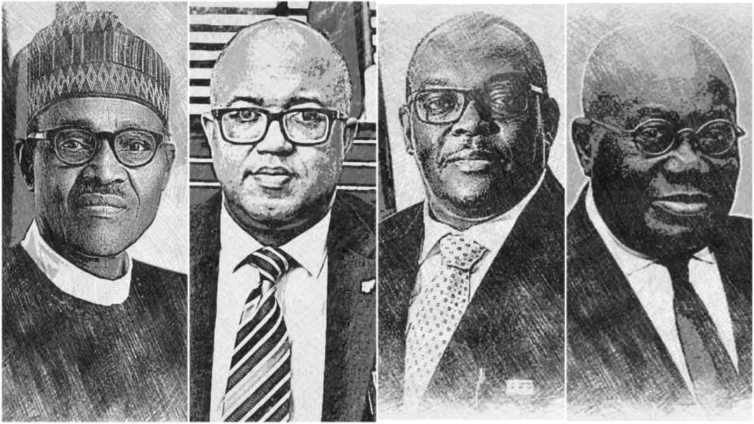In the first part of this exposé, https://www.myjoyonline.com/covid-19-heist-a-case-of-nigeria-ghana-and-sierra-leone-part-i/ we served you the entire Nigerian menu of COVID-19 test corruption, as well as a portion of the Ghanaian recipe. However, this second part not only offers crunchy details of how Ghana openly extorted international passengers in US dollars via a dubious state quarantine, but also how Sierra Leonean authorities acted a bit humanely while dealing with international passengers during the peak of the COVID-19 pandemic. You can't wait to dig into this steaming "kenkey," a traditional Ghanaian meal.
Nightmare at M-Plaza Hotel
Investigation by one of our correspondents showed that M-Plaza, an antique hospitality centre located in the heart of Accra was hurriedly renovated to serve as quarantine centre for the Ghana Health Ministry, among many other centres.
But Nigerians made up the vast majority of those quarantined at the facility, which also housed over a hundred tourists from other countries, including dual-citizen Ghanaians returning for Christmas at the time.
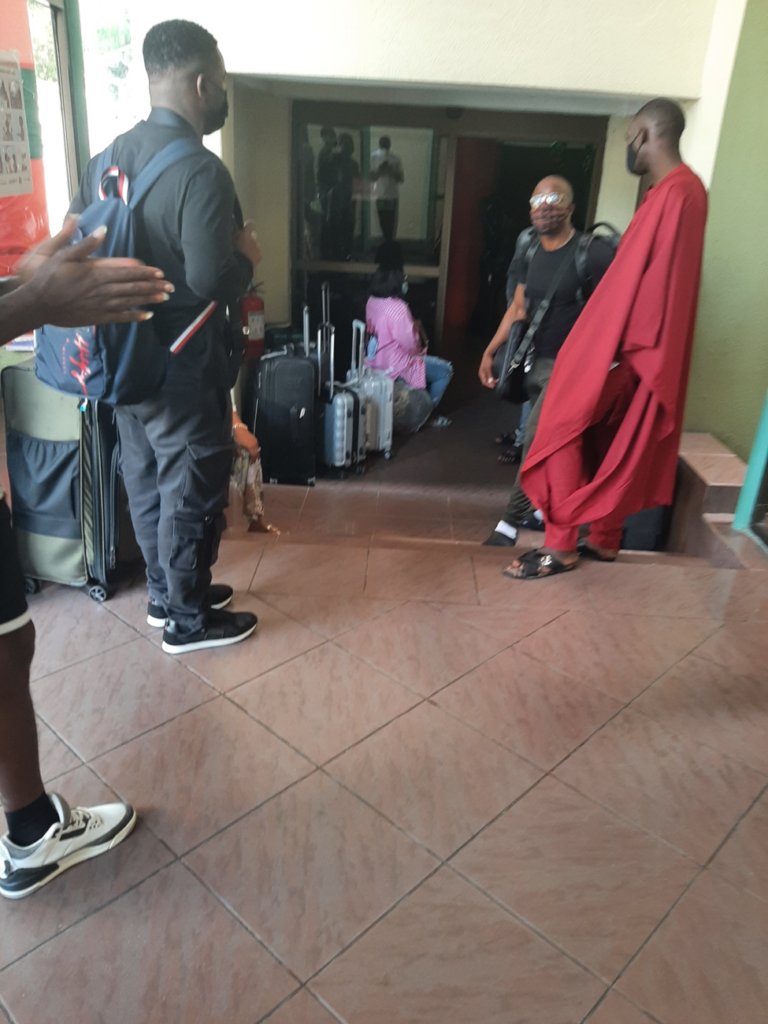
It was December 2021, when many people were unable to travel due to the global lockdown, left their respective countries for the first time.
There was not a single passenger quarantined at the M-Plaza Hotels who did not question the outcome of the COVID-19 test they received from Kotoka International Airport.
It was not only because they had no symptoms of the virus, but also because the hotel staff and health officials attached to it did not follow any of the known COVID-19 protocols.
Officials wore nose masks on their mouths, there were no handwashing locations, no sanitizers were given to suppose patients, and no medications were given out, with the exception of Vitamin C tablets, which many who received said had gone bad.
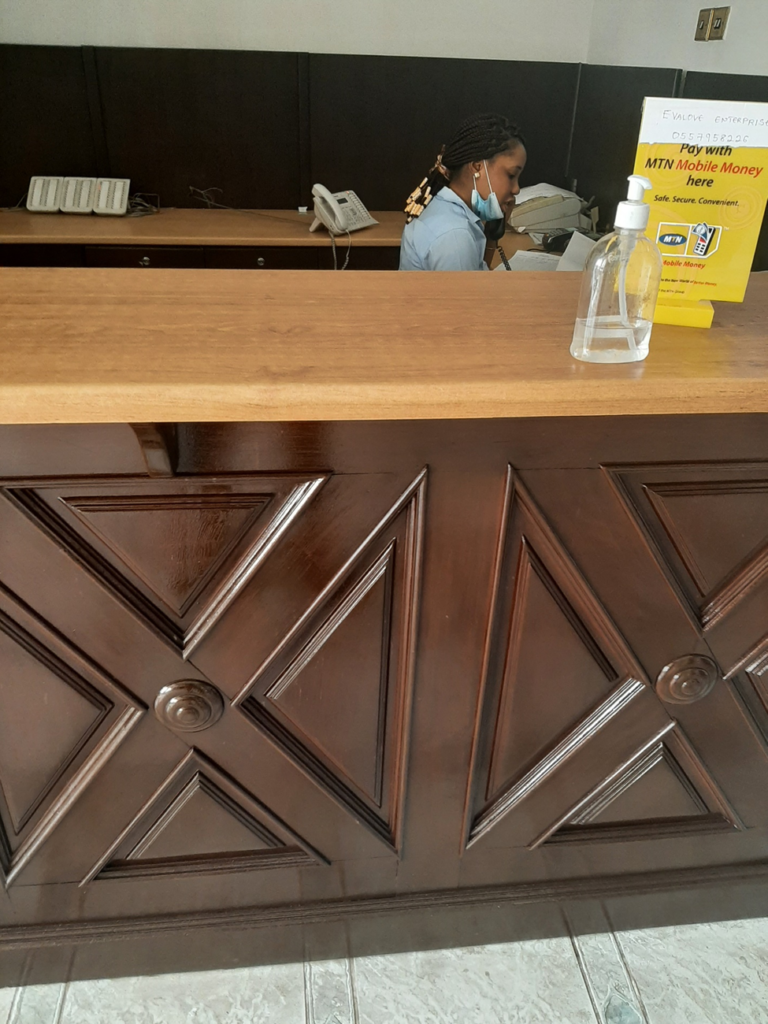
Andriana Aquah, a Ghanaian-Dutch citizen, not only disagreed with the outcome of her COVID test, but also believed she was being extorted and her fundamental rights were violated.
“In Amsterdam, I took a test which came back negative. I did one in Dubai because we had a transit visa there, and it was likewise negative.
“When I arrived at the Kotoka International Airport, they told me I was positive, but all my friends were negative. They are three close buddies,” she told our undercover reporter.
A Ghanaian resident in Washington DC, who gave his name simply as Fred said he did two COVID-19 tests before leaving the US.
“When I arrived, I was informed that I had tested positive for their PCR test. I had two negative tests before boarding the plane.
“I had two COVID tests since I needed a 72-hour exam and realised that the first one I took was a little early and so, I chose to do a second one,” Mr. Fred said.
He left for Ghana after the second test came back negative, only to be informed by the authorities that he had tested positive after a rapid test conducted by Frontiers Health Services at the airport.
The ECOWAS Authority of Heads of State and Government set the COVID-19 PCR test at $50 for citizens and $150 for non-nationals.
But Frontier Health Services charged the same amount for antigen tests that were less than $20 in many accredited laboratories across Ghana.
During his five-day state quarantine at the M-Plaza Hotel, Samson Adegbemiga, a Nigerian music artist, was one of the 13 inmates our undercover reporter interviewed.
All the 13 people arrived between December 16 – 21, 2021 and were whisked away in ambulances without allowing them to have a second opinion from an independent laboratory.
“I came with my crew, and we all passed the PCR test in Lagos. We arrived at Ghana's Kotoka Airport and were tested. I was the only one who tested positive.
“We were traveling from one location to another for days. Why am I the only one who is positive,” Mr. Adegbeluga, who was in Ghana for a concert and a music video project, asked.
He said, “I had to go ask the nurse that ‘you people say you’re quarantining us and you’re not giving us any medication. Is that how they quarantine.’
“They gave me vitamin C and I then asked for nose mask because I had two and they were used. The nurse told me that they did not make provision for nose marks and hand sanitiser.”
Another musician, Anthony Davis also known as Beenie Man was among those who questioned their test in December 2021, when he eluded the results were manipulated.
Mr. Davis had kicked against the state quarantine policy and appeared at interview sessions in various media outlets across the country.
The Jamaican took to Twitter to inform his supporters that he did not get COVID-19 and did not test positive for the virus as falsely claimed by the Government of Ghana.
Second opinion requests rejected
As more travelers were brought to the facility, which had turned into a huge mansion of ruckus, inmates were increasingly demanding a second opinion on their test results.
The medical team and the hotel management did not allow the inmates free access to independent laboratories.
“We want a second opinion on the test. Please give us our passports so that we can go get them. My test result from an accredited lab is negative,” one of quarantined inmate was heard screaming in an audio clip obtained by our undercover reporter.
“During the isolation period, we do not allow private individuals to dot the test. However, every patient has the right get a second opinion from a recognised lab,” said an unnamed medical doctor on duty at the hotel that fateful day.
Quarantine without treatment
Mrs. Raphael and all the inmates who spoke to our reporter said they were not treated for COVID-19 as prescribed by the WHO during their quarantine.
Mrs. Raphael was worried that the facility for keeping alleged positive patients not only failed to treat them but also flagrantly violated all known Covid-19 guidelines.
"They were not providing masks or hand sanitiser to us. Their employees were not wearing protective gear. There was no control over people who were coming in and out of the building.
“If there were positive people here, it could lead to cross contamination, and other people will become affected as well," she had lamented.
While the WHO outlined measures to protect immunocompromised persons as they faced dire complications if infected, inmates said not even one of such measures was followed at the M-Plaza Hotel.
“This woman’s daughter has sickle cell, and they said the mother tested positive for COVID-19, but they brought them here.
“Her immune system is depressed already. Why would you bring her to this place where she is predisposed to being infected,” Mrs. Raphael asked.
The $90 dollar extortion per day
Those who were profiled by Frontiers Healthcare Services at Kotoka International Airport and quarantined at the M-Plaza, Labadi Beach, and Ave Maria hotels had no idea what they were in for.
According to our reporter, upon arrival, each person was informed that there would be a $90 daily mandatory fee as long as they remained in the facility.
The fee covered accommodation, three meals and treatment for COVID-19 which was never administered.
Many passengers spent up to seven days in quarantine, while others spent less time depending on the whims of the medical team or the person's connections within government.
Two days after our undercover reporter was taken into the facility, CENOZO arranged and got an expert from an accredited laboratory in Accra (names withheld) to take his sample for a PCR test.
The result returned negative and was presented to the medical team in charge of the quarantine centre but as expected, they refused to honour it.
The reporter was kept for five days after which he was asked to pay the sum of $450 to secure his freedom.
“I was picked up at the airport on December 19, 2021, and was first taken by an ambulance to Ave Maria Hotel. The ambulance was blaring its siren at about 1am when there were only a few vehicles on the road.
“It felt like I was being taken to the mortuary. When we got to Ave Maria Hotel, the place was filled up. They left me and many others outside the facility and mosquitoes feasted on us.
“After enduring the cold for over five hours, a kind soldier who saw me sitting outside all night decided to drive me and two other people to M-Plaza Hotel on Sunday morning.
“I wasn’t given any form of medication. The medical and hotel staff didn’t observe any of the COVID-19 protocols. They didn’t share nose masks or hand sanitisers or maintain social distancing.
“I had a PCR test on the second day of my quarantine done by a major lab and the result was negative. I showed it to the medical team, but they ignored me. It was after five days that they came around and asked me to go to the account unit and pay my bills and go home.
“They were keeping people just to extort dollars from them and nothing more. We had parties and people were just having fun all over the place. It didn’t look like a place for sick people because not even one person had the least symptom like cough,” our undercover reporter narrated his experience.
Left in the cold
A pregnant Nigerian woman and a Sierra Leonean student were among those who could not afford the exorbitant quarantine fee.
While the pregnant woman (names withheld) said she came to Ghana to spend Christmas with her husband, who lives and works there, the Sierra Leonean girl said she came for a vacation.
When they were told how much it would cost them to stay inside the facility for a day, they started crying and begged for an alternative, which did not exist.
The pregnant woman and the student slept outside the hotel for several days until kind-hearted inmates took them in and let them sleep in their rooms.
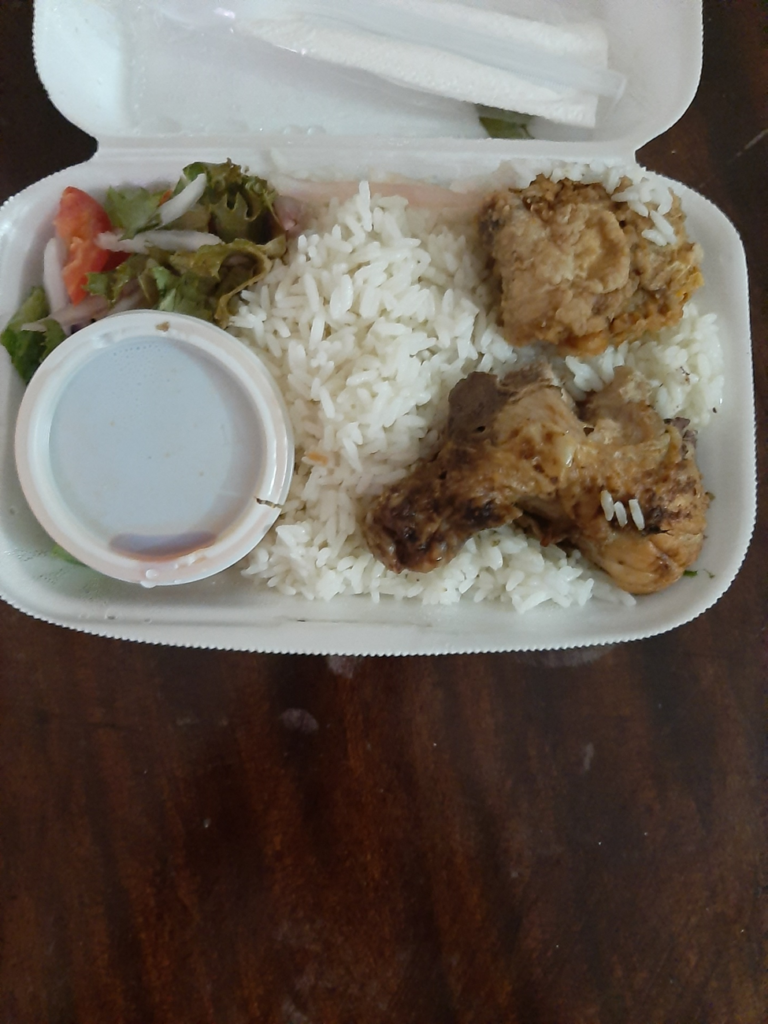
“How can you allow a ‘COVID’ patient to sleep inside mosquitoes again. It seems like we are trying to imprison us for no reason,” one of the inmates from the US shouted at the hotel staff.
Turning to our reporter, she said, “You should have seen the way they brought us here. In a big bus with security escorts blowing a siren as if we're criminals or did something awful.”
"They told us it was $90 for both of us in one room, but now they say we should pay $90 each and stay in the same room," one of two sisters from the United States explained.”
Passport confiscation
As part of measures to ensure that quarantined travelers followed the country’s mandatory limitation, the Ghana Immigration officials seized their passports at the airport.
However, many had kicked against the action, saying it was a gross violation of their fundamental rights and international law.
“My 15-year-old daughter whom I came to pick up from school has been alone in a hotel room for the past three days. That is against international law, and they took my passport,” Raphael had told one of our reporters.
“You cannot collect an American citizen's passport unless they have committed a criminal offense, according to US law. And there is no crime here. These folks are not simply following the rules.”
Every passenger taken into quarantine was forced to surrender their passports and had to get back to Kotoka International Airport to show their discharge certificates before getting them back.
Health ministry speaks
To confirm some of our findings, a Right of Information Request was sent to the Ghana Ministry of Health.
However, the written response by Ghana Health Service Director General, Patrick Kuma Aboagye, failed to address some of the key issues raised by our team of reporters.

While our undercover reporter, on-the-ground health workers, and security operatives confirmed that over 30 passengers were brought to M-Plaza Hotel on a daily basis between December 15 and December 23, 2021, Mr. Aboagye insisted that only seven people were sent to the facility on December 18, 2021.
“Seven passengers arrived at the M-Plaza Hotel on 18th December 2021, to undergo a state quarantine. Travelers from the United Kingdom had the largest number of positive COVID-19 cases.
“Two of the seven passengers were under the age of eighteen, two were between the ages of eighteen and thirty, and two were between the ages of thirty and fifty. Only one traveler was over the age of fifty,” Mr. Aboagye stated.
Explaining further, he said the longest quarantine period was seven days, and the shortest was two days, adding that Azithromycin, Vitamin C and Zinc tablets were administered on the quarantined passengers.
All the quarantined passengers at the M-Plaza Hotel who spoke to our correspondents repudiated the claim.
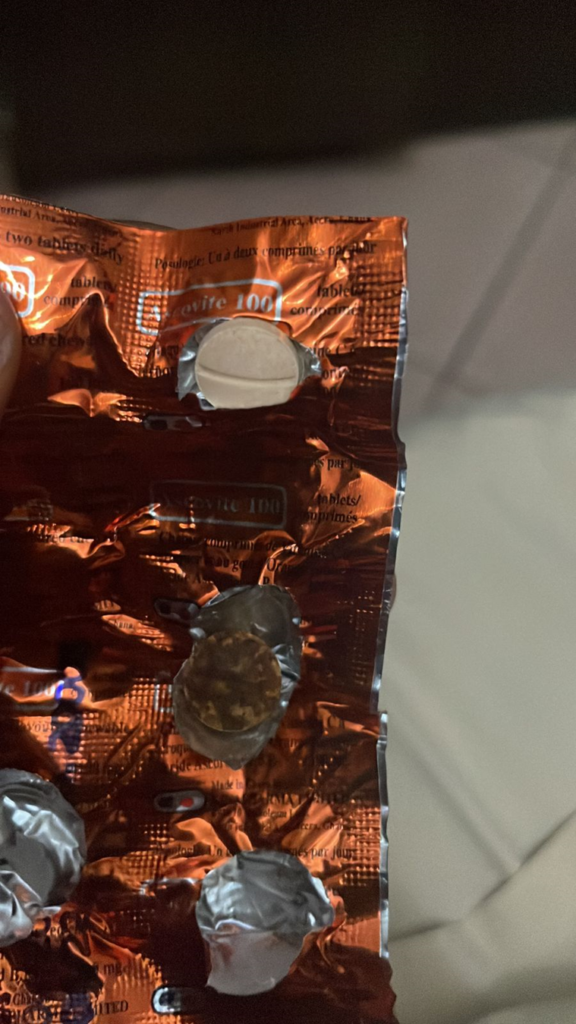
The Ghana Health Service is yet to agree to an interview request from our reporters. The management of M-Plaza Hotel too, did not oblige an interview appointment with our reporters.
The Sierra Leone Story
The Government of Sierra Leone had lifted COVID-19 restrictions on July 14, 2022, preventing inbound and outbound passengers without a negative PCR COVID-19 test result from entering or leaving the country.
The decision was communicated through the country’s Ministry of Health and Sanitation following WHO’s regulation which called on nations to work to detect and report potential public health emergencies without restricting the movement of people.
Before the lifting of the travel ban, passengers travelling to and out of Sierra Leone were required to do a PCR test on arrival and at departure at the Freetown International Airport, Lungi.
The spokesperson for the National COVID-19 Emergency Response Centre, Solomon Jamiru, who also doubles as the Deputy Minister of Information and Communications, said, "Since the resumption of commercial flights in the wake of the pandemic, Sierra Leone, through its structures, was able to serve over 70, 000 inbound and outbound passengers through the Freetown International Airport, at Lungi, through our travel portal at www.travel.gov.sl."
But the Sierra Leonean Government was hard on passengers coming in or leaving the country at the time, our reporter from the country indicated.
Both arriving and departing passengers were required to pay in full for their COVID-19 test which may be regular or premium service.
For regular service, a departing passenger is required to pay Le 500,000.00 which is roughly US $51 while premium service costs Le 700,000.00 which is approximately US $71 at any of the accredited labs in the country.
Arriving passengers, on the other hand, were required to pay US $80 to complete the online form prior to their arrival.
The charges by the Sierra Leonean Government do not reflect the directive by the Authority of Heads of State and Government of ECOWAS which pegged the cost of the test to $50 for citizens and $150 for non-citizens of the subregion.
However, the country does not require COVID-19 vaccination passports or certificates from arriving passengers and does not quarantine passengers with vaccine certificates.
But Abdulai Barrie, a Sierra Leonean resident in Holland said he narrowly escaped being quarantined at the heat of the pandemic when he visited home.
"I am happy that the government has lifted the restriction on tests on arrival and during departure. Even for those of us who were fully vaccinated, it was prohibitively expensive,” he told one of our reporters.
“The last time I visited my family from Holland, I almost got quarantined because I was not prepared to pay for a test on arrival.
“I was threatened by one of the health workers at the airport who said if I did not take the test, they would have to quarantine me in one of the hotels at my expense. I had no option but to pay for the test unwillingly.”
Mr. Barrie recounted how his friends were frustrated with their travel experiences during COVID because they got quarantined at one point.
While he was never quarantined at any time, he noted, "I was told it is frustrating to be quarantined because if an initial test result said you are negative, and within four hours another test in another country said you are positive, it’s discouraging and unimaginable."
"At a particular time, I was not sure of how true the entire COVID issue was going anymore because how can a negative PCR test result suddenly change to positive in less than five hours?
"So, you noticed the conspiracy around this fight has been confirmed by governments around the world, creating a sense that it was a mere money-making syndicate," he argued.
Zainab Rebecca Kamara, an international businesswoman, said, "I was of the view that it was only Sierra Leone that was engaged in the collection of money from travelers all in the name of the COVID test.
“I was surprised that after I did a test in Sierra Leone, upon arrival in Senegal, I had to do another test, even when I produced my negative PCR test result from Sierra Leone."
However, our findings revealed that some West African countries, including Cote d'Ivoire and Burkina Faso, did not require tests from passengers who arrived with a negative PCR result.
The Health Education Programme Manager in the country’s Ministry of Health and Sanitation, Harold Thomas, said Sierra Leone has stopped test on arrival for inbound and outbound passengers.
“But all passengers are required to be fully vaccinated before entering or leaving the country,” he told one of our correspondents.
“Along the line, if you meet the case definition of COVID-19, our medical team will make sure to test the person, and if you are positive, you will be taken care of until you return a negative PCR test.
"Just that you will be responsible for taking the COVID test at your own expense," he said.
The implication is that while a country like Ghana charged passengers $90 per day in its quarantine centres without offering them any form of treatment, Sierra Leone treated passengers and only charged them for the PCR test to confirm they are cleared of the virus.
Since Sierra Leone confirmed its index case in March 2020, to date, the country has recorded a cumulative total of 7,749 confirmed cases, 10 of which were medically evacuated out of the country, with two cases being monitored at home as of Wednesday, September 14, 2022.
The small West African nation has recorded a total of 125 COVID-related deaths, representing 1.6 per cent of all reported confirmed cases.
Despite the successes, healthcare workers are unable to account for a total of 2,725 cases.
Offering an explanation, Mr. Thomas said, "They were not registered as either discharged cases by the quarantined and case management team."
Notwithstanding the slip in the documentation, Sierra Leone has a case fatality rate of 1.6 per cent, with a good number of its 16 political districts going for months without a case.
It shows Sierra Leone has a stable downward trend in the disease caseload report among the Mano River Union states of Guinea, Liberia, and Cote d'Ivoire.
Mr. Thomas told our correspondent the country has reported fewer cases of infection with a lower caseload, no reported deaths, and no hospitalisation.
He stated that the government has shifted its focus to COVID vaccination after receiving a total of 6,756,250 doses of the vaccines.
Based on Worldometer elaboration of the latest United Nations data released on October 24, 2022, Sierra Leone has a population of 8,350,965.
According to Mr. Thomas, 3,034,554 individuals - of whom 52.6 percent were female and 47.4 percent were male - had at least one dose of the COVID-19 vaccine.
He added that 2,333,578 Sierra Leonians from age 12 and above have been fully vaccinated including 52,000 health workers.
Compared to the number of vaccinated people within the target population and the national figures, it means that Sierra Leone has vaccinated a record total of 30.9 per cent of its citizens both within and outside the vaccine target age bracket with at least one dose.
"As a ministry, we are working with science and data, which demands that the government lift these COVID-19 restrictions but does not in any way mean we are out of the rules yet.
"COVID is still with us and if all countries, regions, and territories around the world are still recording cases, then we cannot say COVID is over," Mr. Thomas warned.
He did not, however, speak on why the country charged $80 for COVID-19 premium test against what was approved by the ECOWAS Authority of Heads of State and Government.
This report was commissioned and funded by the Norbert Zongo Cell for Investigative Journalism in West Africa (CENOZO)
Latest Stories
-
Video: Hitz FM’s Rep Ur Jersey ends in style as fans jam to afterparty beats
5 hours -
Hitz FM’s Rep Ur Jersey turns electric as PSG thrashes Inter 5–0 in Champions League showdown
6 hours -
PSG thrash Inter Milan to win first-ever Champions League title
6 hours -
Aviation Social Centre packed as UCL Finale kicks off at Hitz FM’s Rep Ur Jersey
7 hours -
Photos: Fans win big at ‘Rep Ur Jersey’ as sponsors reward game participants with exciting prizes
7 hours -
Australia to increase contribution to UN Peacebuilding Fund to $15m annually – High Commissioner
7 hours -
Dr. Angela Dwamena-Aboagye named MTN Hero of Change for championing women and children’s rights
7 hours -
From Morocco to Botswana – Africans turn to trusted media and experts for climate change information
8 hours -
Mahama announces Labour Export Programme
8 hours -
Prof. Peter Atudiwe Atupare appointed Dean of University of Ghana School of Law
8 hours -
Goldbod is already doing wonders – Mahama praises CEO Sammy Gyamfi
9 hours -
Mahama promises attractive cocoa price in August, pledges 200,000 hectare boost to sector
9 hours -
UHAS Council Chairman Prof. Kodzo Gavua urges graduates to serve with passion, integrity, and innovation
10 hours -
Dr. Charisa Ogbogbo becomes first female professor in Mathematical Sciences at UG
10 hours -
Communication Ministry assures data price cuts as TELCOS prepare to reduce costs soon
11 hours

